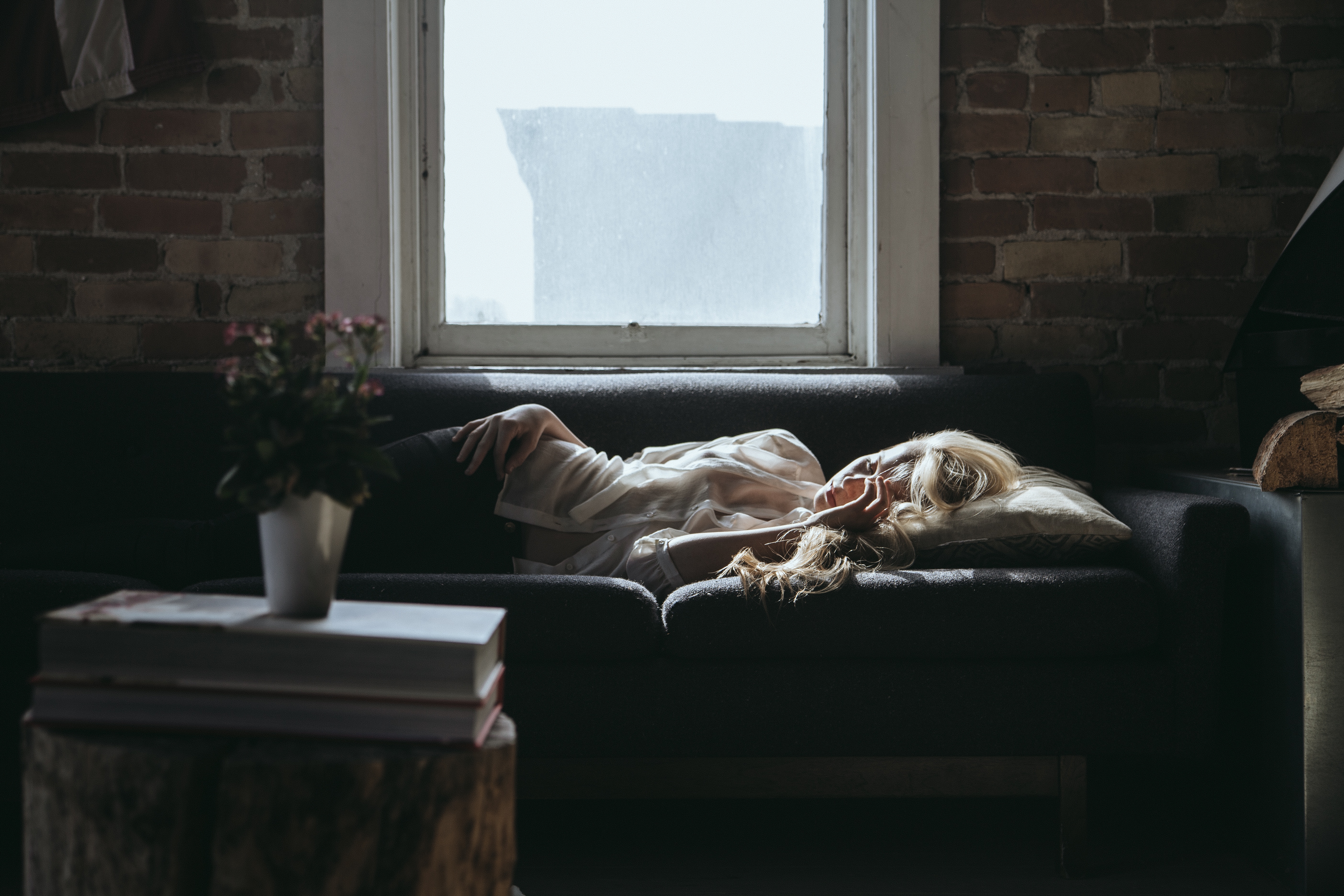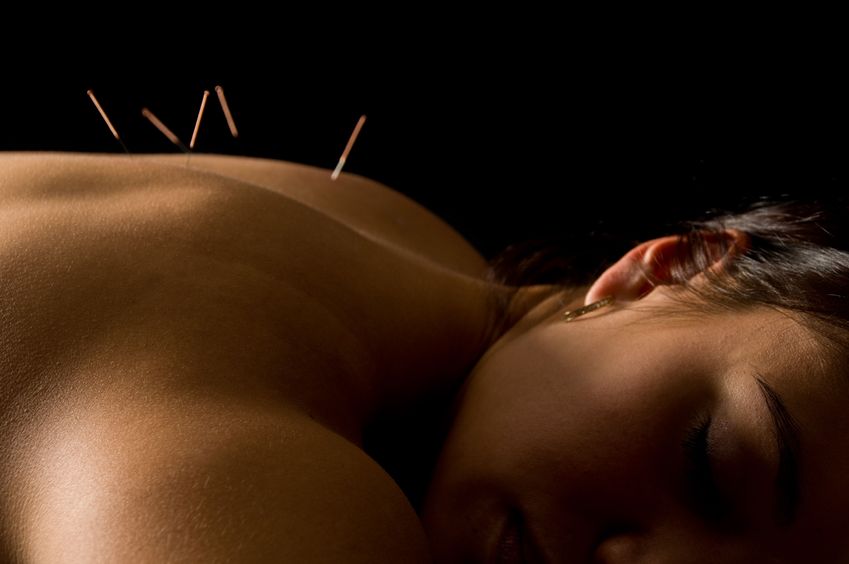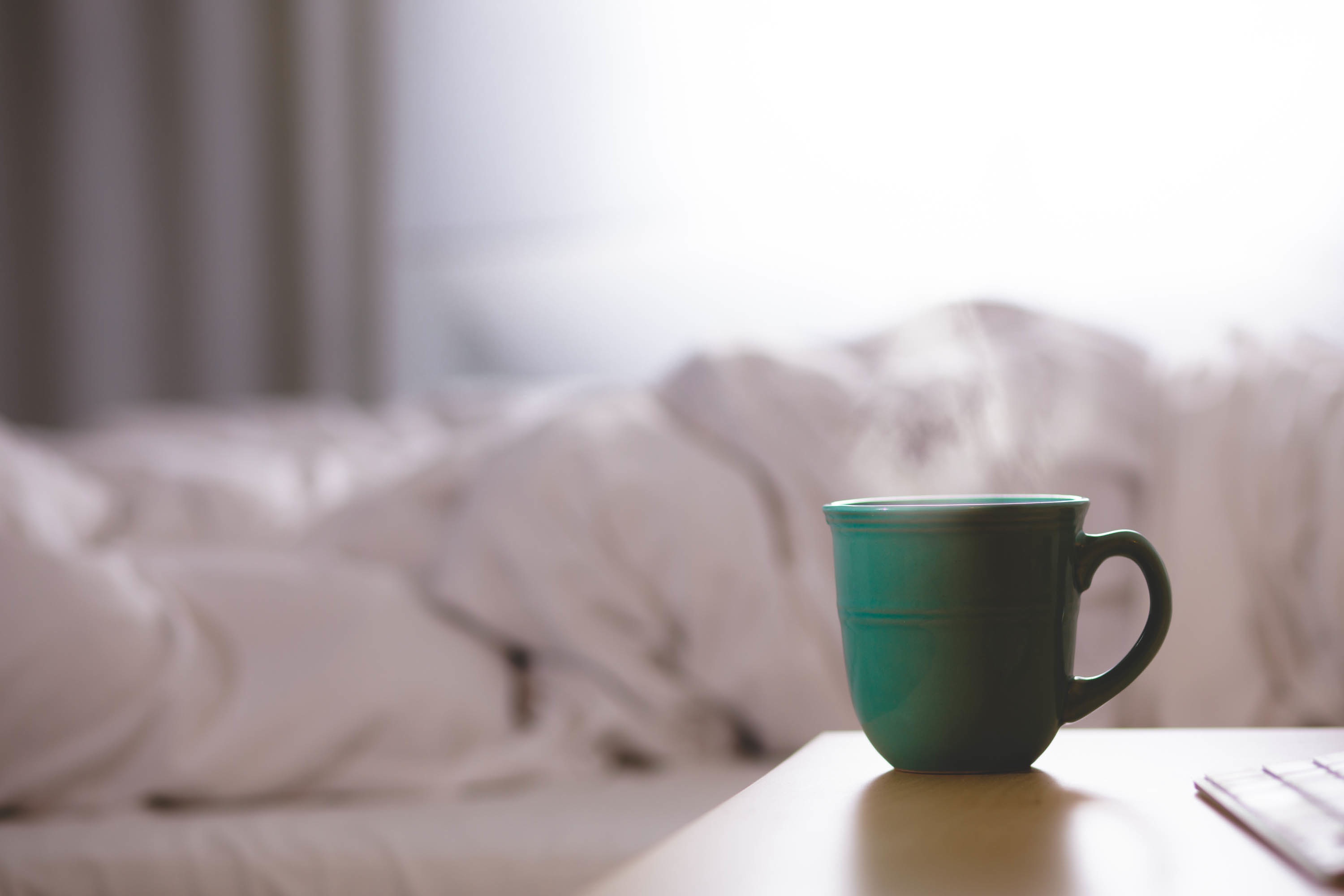
Sleep is low on a lot of people’s priority lists, but it’s actually an extremely aspect of being healthy. In fact, it’s so important that some, including CrossFit HQ, refer to it as a key component of the health trinity — diet, exercise and sleeping well.
Despite its paramount effects on your health, most Americans get less than the recommended eight hours of sleep a night. However, you’ll find that when you start making sleep a priority, you sleep better and therefore feel better and perform better on a day to day basis.
But for many people, it isn’t that sleep isn’t a priority — it’s that sleep can be elusive. Before you visit your doctor for a nighttime prescription, try a few of these natural remedies to get your sleep right on schedule.
25 Natural Ways to Sleep Better
1. Turn Your Phone Off
There’s a reason we sleep at night and wake up when it’s daylight. This is because our bodies produce a chemical called melatonin after dark in order to make our eyelids grow heavier.
LED screens like those found on televisions, computers and cell-phone produce blue light, which in turn causes our body to produce cortisol. Cortisol by itself is fine, but it inhibits the production of melatonin, meaning your body will have a harder time falling asleep according to a study published in the Journal of Sleep Medicine in 2011. According to the study, the people who struggled with putting their phones down before bed the most are millenials. Not surprisingly, this is also the largest group with reported sleep issues.
To combat this, Apple recently released a feature called “Night Shift” where your phone automatically adjusts its coloring to warmer hues (therefore eliminating the blue light) after dark. Although this is bound to benefit those of us who can’t seem to put our phone down, the easiest solution is to make your bedroom a screen-free zone.
Turn off your phone — and your computer and your television — about an hour before bedtime. Use this time to take a bath, clean up after dinner or get things ready for the next day instead.
2. Exercise in the Morning
Exercise is great for you, but it leads to an elevated heart rate. Although this is normally a great thing, an elevated heart rate can make it more difficult to fall asleep.
Next time you hit the gym, try to go at least three to four hours before bedtime or swap your workout routine to the AM hours for the best results.
3. Heat up a Glass of Almond Milk
Milk contains tryptophan, which is the same substance found in turkey that supposedly makes you sleepy.
However, if you’re not a dairy drinker, no worries. Researchers say that the connection between milk and a better night’s sleep is mostly psychosomatic, so a warm glass of almond milk should do the trick just as well.
4. Say No to Caffeine
If you’re struggling with falling asleep at night, you may want to cut out the morning coffee as caffeine is a well-known stimulant. If you’re not ready to give caffeine up cold turkey, try phasing it out slowly or just saying no to coffee after 12 p.m.
5. Try Some Acupuncture
Acupuncture is an ancient Chinese medical practice that involves stimulating nerves and muscles by inserting thin needles. No need to worry, most acupuncture is painless. Although it’s still considered a controversial medical practice, the National Sleep Foundation stands behind it as a possible sleep aid.
“More research is needed to find out exactly how much acupuncture can help improve sleep, but it can help you feel more relaxed and less anxious, which may encourage you to fall asleep easier,” the Foundation says. “Acupuncture has also been shown to help manage sleep apnea, perhaps because it strengthens the tongue and prevents it from dropping back during the night and blocking your airway.”
6. Turn the AC Up
Your body temperature lowers to signal to your brain that it’s about time to go to sleep. Give it a jump start by turning your air conditioner up a few degrees about an hour before you’re ready for bed.
7. Change Clothes
One important part of falling asleep is letting your body know it’s time to wind down for the night. One way you can do this is by making sure you have clothes (or a pair of underwear, or nothing) that are designated for sleep.
It doesn’t matter what you’re sleeping in — even if it’s the buff — as much as it matters that it’s a change from what you’ve worn throughout the day.
8. Take Advantage of a Bedtime Snack
The best way to enjoy a bedtime snack is to pick a snack that is rich in both protein and carbohydrates, like peanut butter and half of a banana or almonds and a piece of fruit.
Why? Remember our little friend, tryptophan?
“Certain foods contain an amino acid called tryptophan that causes sleepiness,” the Sleep Foundation says. “Carbohydrates make tryptophan more available to the brain, which is why carbohydrate-heavy meals can make you drowsy. Proteins from the food we eat are the building blocks of tryptophan, which is why the best bedtime snack is one that contains both a carbohydrate and protein.”
9. Use Lavender Oil
Using lavender oil or lavender-scented things may make it easier to fall asleep.
Sound a little hippy dippy? Check out an excerpt from the University of Maryland on the scientific uses for lavender.
In folklore, pillows were filled with lavender flowers to help restless people fall sleep. Scientific evidence suggests that aromatherapy with lavender may slow the activity of the nervous system, improve sleep quality, promote relaxation, and lift mood in people suffering from sleep disorders.”
10. Establish a Consistent Routine
Send your body signals that it’s time to start getting sleepy by establishing and sticking to a routine each night.
You can start an hour before bedtime by turning off your screens. What you do during that hour is up to you, but it can be any variation of getting your pajamas on, taking a bath, brushing your teeth, washing your face, or having a bedtime snack.
What you do isn’t as important as doing the same thing each night to establish strong associations in your mind.
11. Try Some Valerian Root
Not to go all Harry Potter on you, but valerian root has been used as a natural sleep remedy for centuries.
A natural and safe sedative, valerian root can be used as an insomnia cure, although some studies suggest that it can take a few weeks for it to take affect. It can be taken in a powder or liquid form.
12. Learn How to Meditate
Many professionals attribute issues with falling asleep and staying asleep to excessive stress, so it makes sense that meditation could be a powerful tool in the quest for a decent night’s rest.
In studies, mindful meditation can make a significant difference in not only your ability to sleep better, but also your levels of anxiety and depression over time. To try it on your own, pick a calming word, phrase, or thought to focus in on — your breathing or a basic chant, think “ommmms” — and zero your mind in on that until you feel yourself begin to relax.
13. Try Upping Your Magnesium and Calcium Intake
Research has shown that not having enough magnesium and calcium in your system can contribute to sleeping problems.
You can easily remedy this problem by eating more magnesium and calcium rich foods — like fish, green vegetables and almonds — or by taking a daily supplement of each.
14. Have a Glass of Tea

Many herbal teas contain natural supplements of herbs and roots that promote sleep like lavender (see #9) and valerian root (see #11), as well as chamomile.
Next time you’re at the grocery store, check the tea aisle for boxes marked to assist with sleep and start including a warm glass of tea in your night time ritual.
15. Try Elevating Your Feet
Although there isn’t a whole lot of science to back it up, some people suggest trying to sit with your legs elevated for 15-30 minutes each night before going to sleep to promote better blood flow and to relieve the pressure on your legs after walking on them all day.
The great news is that there’s no harm in trying and if it works for you, it’s a simple way to sleep better each night.
16. Get Out of the Bed
If you see that you can’t fall asleep, get out of bed.
This may seem counterproductive, but you want to think of your bedroom as somewhere to sleep, not a misery-filled dungeon where you toss and turn for hours on end.
If your body isn’t ready to call it a night, get up and read a book or take a bath until you feel sleepy. Then, and only then, return to the bedroom and snuggle in.
17. Eat a Big Breakfast
If you’ve completed a Whole30 or read “It Starts With Food,” you know the importance of eating a big breakfast to regulate your hormone levels.
A simple breakdown is that your body produces melatonin when it’s time to sleep and cortisol when it’s time to wake up. However, if you’re not eating well or not eating enough, those hormone cycles can get all out of whack.
Eating a large, healthy breakfast stimulates your body to create the cortisol it needs. Try it for a week and you should notice that you begin to wake up and fall asleep easier.
Dr. Nerina Ramlakhan, author of “Tired But Wired,” also echoes this sentiment, saying that eating a large breakfast signals to your brain that food supplies are stable and you can rest easy.
18. Keep Your Naps Short
If you’re exhausted throughout the day, it can be hard not to take a nap, especially if you’re having a hard time focusing at work or keeping your thoughts clear.
If you do nap, make sure you keep it short. A 20-minute power nap is all you need to recharge yourself. Anything longer than that will leave you feeling punch-drunk and grumpy and can possibly affect your ability to fall asleep easily at bedtime.
19. Stop Smoking
Just in case for some reason you still needed some motivation to stop using tobacco, smoking can seriously affect your sleep.
Because nicotine is a stimulant, smokers tend to not sleep as well as their non-smoking counterparts. Even if they’re sleeping the same amount of hours, smokers spend less time in deep, REM sleep, are more restless, are more likely to wake up in the middle of the night, and are more likely to develop sleep apnea.
20. Try a Bowl of Cherries

Melatonin is the hormone your body produces at night to help you fall asleep. Montmorency tart cherries are an excellent natural source of melatonin.
In fact, researchers at LSU found that an elderly group of insomniacs who drank a glass of cherry juice twice a day managed to get on average an hour more of sleep a night.
Try drinking a glass in the morning and then a glass before bed or eating cherries as a snack a few times a day.
21. Grab a Noise Machine
If you’re a light sleeper, anything from a creak in your house to a dog bark down the street can disturb your slumber, making for a frustrating night of tossing and turning.
A noise machine creates background or ambient noise, which is not only soothing, but can also cover up other minor disturbances that may disturb your sleep patterns.
22. Take a Warm Bath
Because your body temperature drops as a way to signal to your body that it’s time to go to sleep (see #6) a warm bath can help speed up that process.
Not only is a warm bath relaxing, but when you get out of the warm water, your body is exposed to a temperature difference that can jumpstart your temperature dropping process. Give it a try and turn on a fan in the room you’re getting dressed in if you really want the chills — in a good way of course!
23. Lose Weight
There are huge links between being overweight and developing sleep apnea, which can make it difficult to fall asleep and stay asleep.
When you suffer from sleep apnea, you actually stop breathing for short periods of time while asleep. The disorder is dangerous, but can be cured through the use of a CPAP machine and can also be helped by things like quitting smoking and losing weight.
If you’re overweight and struggling with sleep, losing some weight would be beneficial not only for your overall health, but for your nighttime routine.
24. Stop Obsessing
A lot of sleep troubles can be linked back to stress and anxiety, so chances are if you’re worried you won’t fall asleep, you won’t.
Remember that even if you don’t fall asleep, it’s okay. Although it can feel maddening and depressing, you aren’t the only one who struggles with sleeping and you will find a solution. Beating yourself up over not being able to sleep is not a tool for successfully falling asleep.
25. Ask a Doctor
If you’re at the end of your rope with your sleep troubles and have tried everything, talk to your doctor about your insomnia. If you prefer a non-medicinal route, there are types of cognitive and behavioral therapy specifically targeted towards patients who suffer from insomnia.
